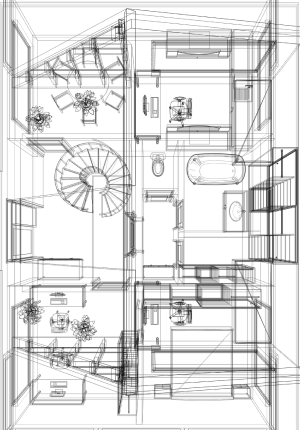How Windows Affect Your HVAC System

When setting up a new AC or heating system at home, it’s crucial to grasp the details of its load calculation. The contractor gives you this calculation, taking into account things like your home’s size, windows, doors, insulation, and ductwork. The goal is to make sure the HVAC system is the right size and style, so it works efficiently and keeps your home comfy.
Now, let’s talk about something we often overlook: windows. They actually have a big impact on how hard your HVAC system has to work and how energy-efficient your home is.
If your windows aren’t well-insulated or have single-pane glass, they can let heat escape or come in, making your HVAC system work more. On the flip side, energy-efficient windows, like double-pane ones or those with special glass, help keep heat in or out. Sealing your windows properly is also important because it stops air from sneaking in or out, making your home more energy-efficient.
Open windows might sound nice for fresh air, but they make your HVAC system work harder. It has to compensate for the air that’s escaping, and over time, this can lead to overheating and extra wear and tear on the system.
Windows can actually help your HVAC system in these ways:
- Daylighting and Heat Gain: Well-designed windows can utilize natural daylight, reducing the need for artificial lighting and lowering the cooling load. However, this depends on factors like window orientation and shading.
- Solar Heat Gain: South-facing windows can capture solar heat during the winter, reducing the heating load. This passive solar gain is an energy-efficient way to contribute to HVAC performance.
- Ventilation: Properly placed and sized windows facilitate natural ventilation, allowing fresh air to circulate and potentially reducing the demand on mechanical ventilation systems.
On the other hand, windows may make it more challenging for your HVAC system in these ways:
- Heat Loss: During colder months, windows can be a source of heat loss, leading to an increased heating load. This is especially true for single-pane or poorly insulated windows.
- Heat Gain: East and west-facing windows can allow excessive heat into a building, increasing the cooling load during warmer months. Without proper shading, this can strain the HVAC system.
- Insulation Challenges: Even with advanced window technologies, windows generally have lower insulation values compared to walls. This can contribute to increased heat transfer, impacting both heating and cooling loads.
If you think you have the wrong window for your HVAC system or vice versa, consider consulting with a professional to assess the situation. They can help determine the appropriate window size and guide you on potential solutions, such as resizing the window or exploring alternative HVAC installation options.
To assist your HVAC system’s efficiency through window management:
- Insulation: Consider using insulated curtains/blinds or adding window film to improve insulation, reducing the need for excessive heating or cooling. Closing the curtains or blinds during hot, sunny days can reduce heat entering your home, easing the load on your air conditioner.
- Ventilation: Utilize natural ventilation by opening windows when outdoor conditions are favorable, reducing reliance on mechanical cooling or heating. BUT FIRST, check the allergen forecast. opening your windows exposes you to allergens, which can reduce your home’s indoor air quality and leave you sniffling. Depending on the time of year, numerous allergens can pollute the outside air, and open windows will bring them inside.
- Circulation: When you turn off your HVAC system, air flow ceases. You might feel a light breeze when you pass an open window, but otherwise, you won’t experience much disturbance in your home’s air. Use ceiling fans to keep you comfortable and to circulate the fresh air throughout your home. You can also open windows on opposite sides of your home to create cross-ventilation. You might find yourself more comfortable when the air comes from two different directions.
By incorporating these practices, you can enhance your HVAC system’s performance and potentially lower energy costs.
In a nutshell, while windows are awesome for light and fresh air, how they’re designed, where they’re put, and if they’re good at keeping things hot or cold are key. Taking care of these things is super important to save energy and keep your home cozy.
If you’re ready to enhance your HVAC system’s efficiency or have any HVAC design needs, feel free to reach out to us at [email protected]. We’re here to help you achieve the perfect balance for your home comfort and energy savings.


